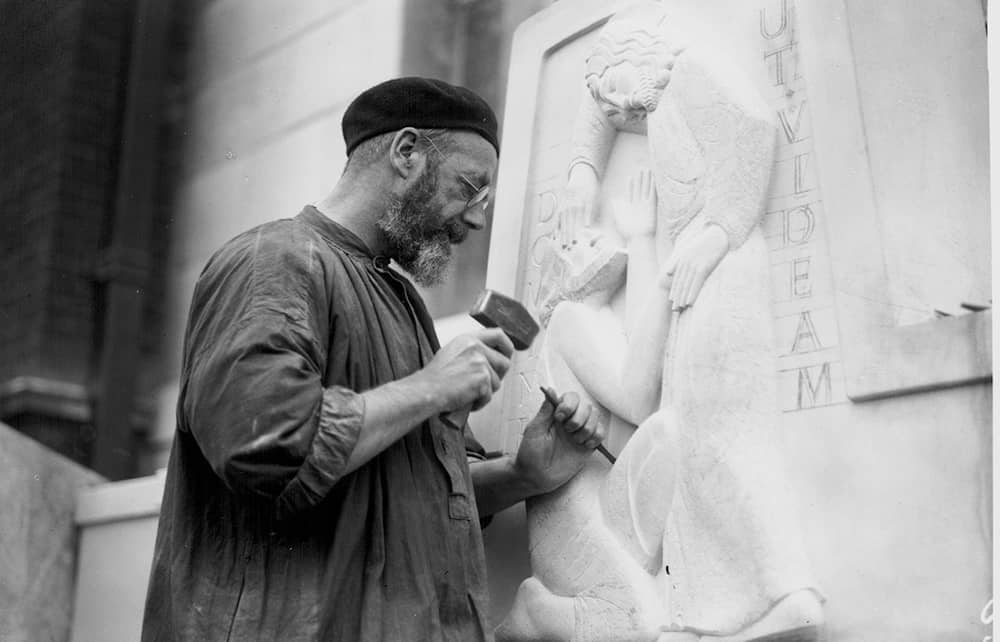Wrong is right
Sir: Having spent most of my working life in Rhodesia (now Zimbabwe), I never pass up an opportunity to catch up on what is happening in Africa. Michela Wrong’s article (‘Hotel Rwanda’, 23 April) illustrates well the incompetence of Priti Patel in sending asylum seekers to President Paul Kagame’s Rwanda against, apparently, the advice of her own civil servants.
I had to read that bit twice because I have always admired Patel for her forthright and sensible executive decisions. But what is the motive here? Michela Wrong itemises Kagame’s history of killings going back to 1994 and the atrocities committed by Rwandan troops in the Democratic Republic of Congo in 1996 and 1997 in an unholy alliance with Congolese rebels. Frankly, I am appalled.
Donald King
Kennerleigh, Devon
The deal of the art
Sir: Having worked in the picture department at Christie’s in the 1970s I was disappointed to see the level of wokeness that has crept into such a fine establishment (‘Bigger picture’, 30 April). Apart from those whom Jack Wakefield mentions – Eric Gill, Balthus, Caravaggio and Picasso – there are other countless great artists with flawed characters. The most obvious are Egon Schiele, Richard Dadd and Fra Filippo Lippi, but the list continues. I would have thought the job of an auctioneer is to sell art rather than making moral judgments and ‘cancelling’ artists. They would be foolish to refuse to sell pictures by any of the above, who are no more or less honourable than Gill.
Sir Charles Blomefield
Chipping Campden, Gloucestershire
Cross about Blackwell’s
Sir: Martin Vander Weyer (Any other business, 23 April) comments on the takeover of Blackwell’s bookshops by Waterstones, and the deleterious effect of Amazon on physical bookselling. I hope that Waterstones, under the leadership of James Daunt, will not only retain Blackwell’s name over the door for my lifetime – I am 85 and intend to go on reading for a long time – but also its ethos of a well-loved and informed organisation. In 1942 my father was stationed at Worcester College, requisitioned by the army during the second world war, and we lived for a year in Holywell Street, a few yards from Blackwell’s. I vividly remember being taken there to buy my first book, The Tale of Tom Kitten, the first of many books bought from Blackwell’s and other independent bookshops. There is nothing like handling a book before purchase. It is a sensation that cannot be replicated.
Cessa Moore
Hereford
A prophet speaks
Sir: Douglas Murray’s excellent article (‘West is best’, 30 April) reminded me of the words used by Kenneth Clark to conclude his television series, Civilisation: ‘It is lack of confidence, more than anything else, that kills a civilisation. We can destroy ourselves by cynicism and disillusion, just as effectively as by bombs.’ Prophetic and apposite.
Guy Bargery
Edinburgh
Fun on the autobahn
Sir: One of your correspondents suspects that there are more good hitchhiking stories out there (Letters, 30 April). Perhaps these could include my experience while in the army in Germany in 1966. Not infrequently, when filling up at a petrol station on the autobahn, I would be approached by a young female hitchhiker carrying a small bag. Naturally, I normally agreed to take her where she wanted to go, only to find that a large friend with two enormous rucksacks would appear and I would then be obliged to struggle along in my Mini wedged down by the pair of them.
However, on one occasion I had been issued by the medical sergeant with a gross of French letters (I was heading for a three-month course in Norway, where they were not in fact needed as the locals knew far more about contraception than I did) which were in a box on the back window ledge. Suddenly I had to brake hard and the box flew forward, burst open and scattered its contents all over the car and its passengers. My hitchhikers demanded to be let out at the next exit.
William Beckett
Vernham Dean, Hampshire
Solar, so good
Sir: Barometer (9 April) drew attention to the deployment of solar panels on agricultural land. Private and helicopter pilots have the privilege of viewing both rural and urban landscapes from 3,000ft. The many flat-roofed distribution centres, supermarkets, factories and housing developments display few, if any, of these panels – yet the country is to embark on commissioning nuclear power stations projected to provide power in seven to ten years’ time.
Planning law can readily be modified to encompass the fitting of solar panels on to a percentage of flat-roofed industrial buildings and south-facing house roofs. It is considerably cheaper to incorporate this into the build than to do it by retrofitting. With the recent hike in energy charges, the payback time will be shorter too and we might need fewer nuclear plants.
Tom Dehn
Reading
Wise words
Sir: Like Cosmo Landesman (‘Looking for trouble’, 30 April), I regret that harmless ‘people-watching’ on public transport may be criminalised. But the natural temptation to stare at one’s fellow passengers, whatever their sex, age or appearance, may be avoided by procuring some sufficiently engrossing reading matter before boarding one’s train or bus. Personally I have always found The Spectator to be admirably suited for this purpose.
Richard Gamman
Brighton






Comments